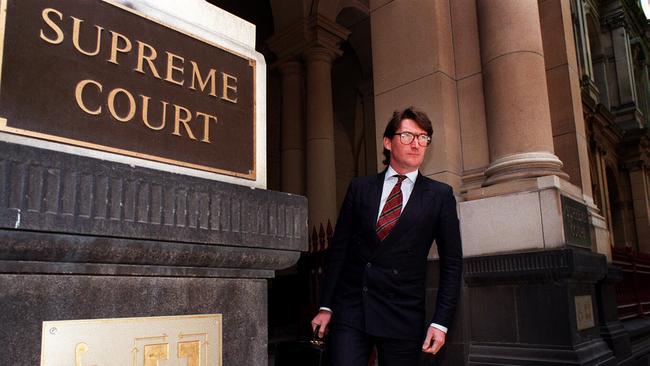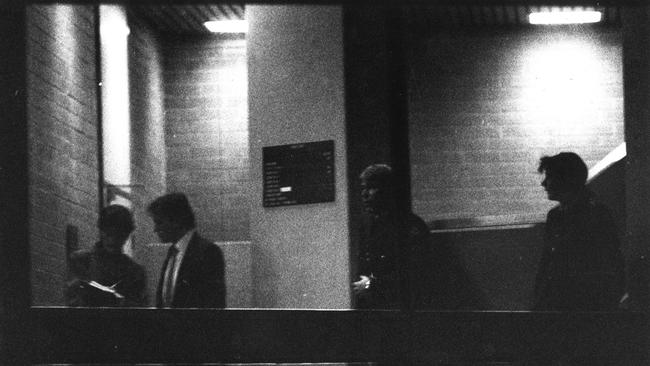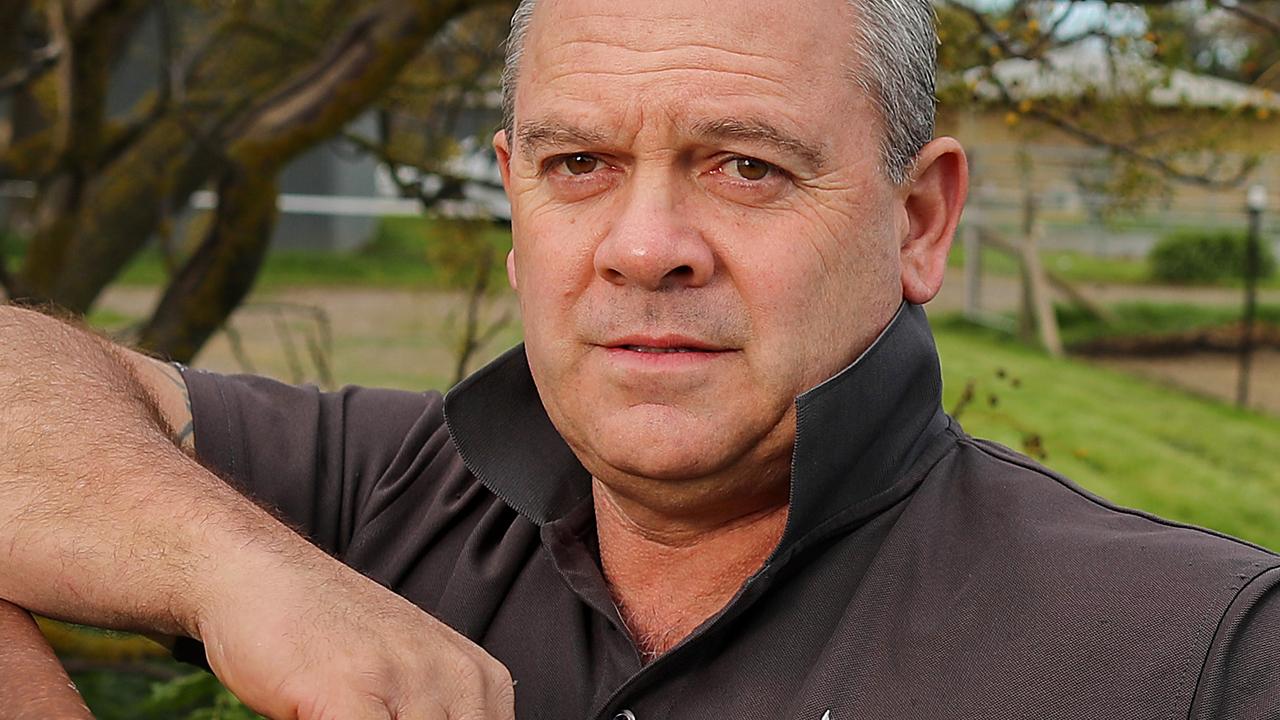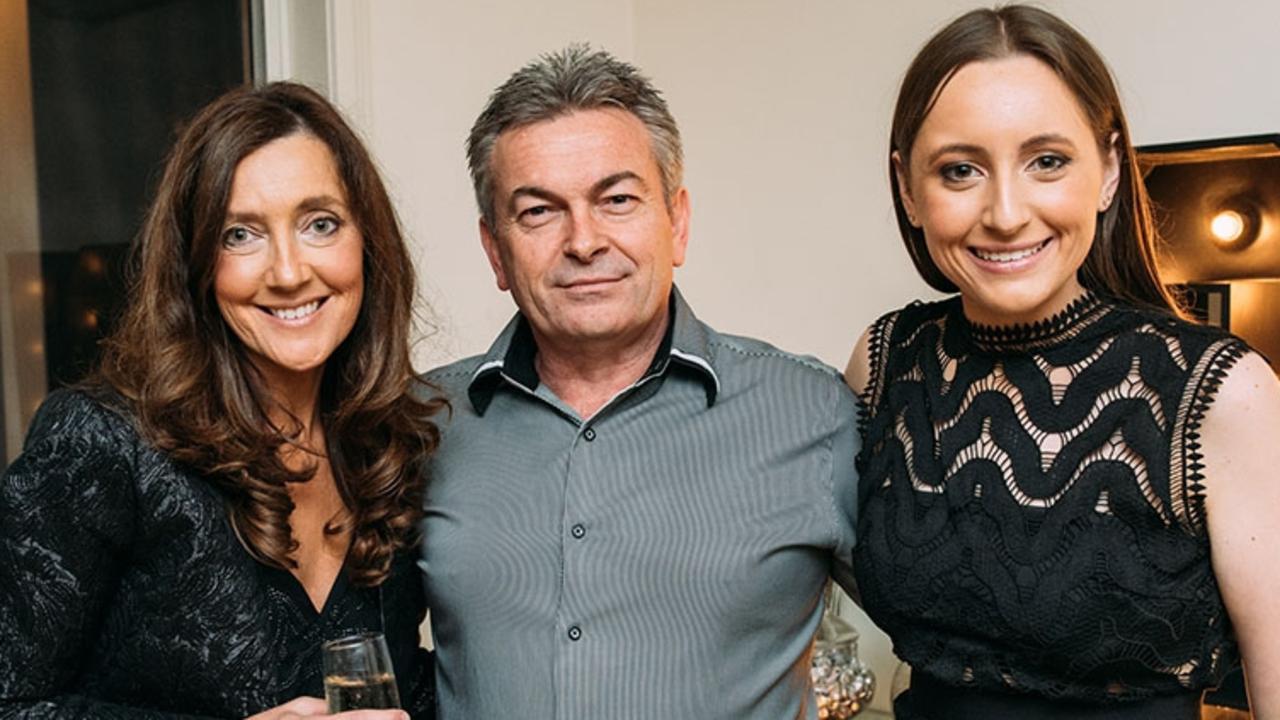Vale Stephen Myall, magistrate and man who cared too much
STEPHEN Myall threw himself into his work with such dedication that he had no answer to the crushing pressure, writes Andrew Rule.
Andrew Rule
Don't miss out on the headlines from Andrew Rule. Followed categories will be added to My News.
THE first time I saw Stephen Myall he was a long-haired, skinny waif enjoying the first months of freedom after escaping a Catholic boarding school.
He was a country kid in his first year at university and didn’t want to miss anything. We called him “Muggsy”, the nickname that had followed him from school and would later follow him into the law.
The candle burned brightly for Muggsy, often at both ends. His eyes gleamed with fun he was having, memories of fun he’d had before, and in anticipation of fun to come.
He was 18, so his idea of fun involved surfing, pubs and loud music but he was also a voracious reader and animated speaker. Most of all, he was an enthusiast, instinctively kind and with an inquiring mind. Some people have fast-twitch muscles — Muggsy had a fast-twitch brain.
MORE ANDREW RULE: RAPE VICTIM’S COURAGE ROSE ABOVE PURE EVIL
AT PETER SPENCE’S FAREWELL, OLD-SCHOOL POLICE TOLD TOUGH TALES
SYD AND CHOPPER, A TALE OF TWO IDIOTS
HOW DO GUN THIEVES KNOW JUST WHERE TO STRIKE?

A couple of memories stand out. One involved his good friend — a fuzzy-haired surfer known as “Leo”. Leo drove an Austin 1800 ute to carry his boards but his favourite transport around campus was an old bike with a rickety luggage rack behind the seat.
Their trick was for big Leo to pedal downhill like a lunatic while Muggsy stood on the rack behind him, “bike surfing” at a speed terrifying to watch, yahooing and cheering. No helmets, of course, in those riskier times. It’s no wonder, maybe, that when he could afford it, Muggsy took up exotic motorcycles. He loved the adrenaline.
The last time I saw him at university he was sitting up in bed in the usual chaotic student house, eating cornflakes from an electric jug. In his defence, it was lunch time.
The next time we met was in that ugly brown-brick slice of street life, Prahran Court. He had his hair cut, a collar and tie and steel-rimmed glasses but those eyes still gleamed — not with mischief but with passion.

He had found his life’s work: representing the underdog.
He threw himself at it with the same gusto he did everything.
From suburban courts to working for Slater & Gordon to setting up a legal partnership with the later well-known criminal lawyer Rob Stary, Stephen Myall was always the same: smiling, polite and reliably frantic. Cases big or small, he worked every one as if it was his own freedom on the line. A true believer.
Because he believed in justice for all, he truly believed even the worst accused deserved vigorous representation and a fair trial.
He represented those accused of nightmarish crimes that must have made him shudder. He won admiration from those in the legal system who know how lonely it is to be the lawyer for the damned. In 2005, he became a magistrate.
Instead of representing those who needed it most, he sat in judgment. In his case, fairness was tempered with humanity and humour.
A lawyer who knew him well says: “Steve treated clerks the same as he treated police and witnesses, always politely. He treated unrepresented accused with patience and kindness, far more than most of us might. I wouldn’t know anyone who would have a bad word for him.”
In a tough profession he worked the toughest places: Sunshine, Broadmeadows and courts across the Geelong region.
As years passed, the outer suburbs swelled and the population exploded, so the workload became more intense for him and all magistrates.
Peter Ward, a principal of Galbally & O’Brien, has been practising criminal law for 44 years. In that time, says this admired solicitor advocate, the pressure on magistrates has increased not just through the ballooning volume of work — but the gravity of it.
When Ward started out, magistrates would handle burglaries only up to a value of $500 — then a few weeks’ wages — and any drug trafficking or robbery cases were automatically pushed up to the county court. But pressure on the higher courts has kicked the workload back “downstairs”, so that magistrates daily handle property crimes up to $100,000, drug trafficking and crimes of violence.
The explosion of “ice” addicts and family violence offences jams every magistrates’ court, says Ward.

“On a normal day, and in a packed courtroom, a magistrate has to make 20 or 30 instant decisions under excruciating pressure. If a magistrate gives someone bail and it’s high-profile they are castigated, often in the press and on radio.”
The more serious the offence, the more likely it is that magistrates are attacked for a decision.
Ward’s view, seconded by another veteran in defence lawyer Bernie Balmer, is that magistrates do an outstanding job under great pressure not of their making. They say many working in the system wonder if the vaunted “night court” is a token exercise to make it seem that the state is doing something to reduce enormous court lists.
A night court needs more than keeping the door open after 4pm — it needs the full roster of prosecutors and police, court staff and corrections officers. Balmer, a one-time clerk of courts, says taking courts out of the suburbs and country towns in the name of efficiency has created “sausage machines” in bigger court complexes.
Good magistrates “get flogged to death” both because of the workload and “demonising” of their decisions in controversial cases, he says.
The death metaphor is all too real.
Late last year, a magistrate ended her life. Ten days ago, Stephen Myall ended his.
No one can be sure of the trigger points for these unforeseen deaths, but concerned members of the legal profession point at the corrosive effect of repeated exposure to the worst of human behaviour, combined with relentless workloads and the pressure of public, political and media opinion.
THREE years ago, a contemporary of Myall’s, a successful senior practitioner with his own legal firm, took a different exit for perhaps similar reasons. “Rick” was a high-flying lawyer right up to the morning an evil man named Arthur Freeman flung his daughter Darcey from the West Gate Bridge on January 29, 2009.
Rick had represented Darcey’s mother in the family court. He was acting for her when her estranged husband took their children for a weekend access visit and committed that unspeakable act.
Rick’s peace of mind was shattered and so was his career and his firm’s future. His solution was to leave the courtroom forever, making plans to ride a bike around Australia.
But not everyone walks away in time. Just over two weeks ago, a magistrate postponed court hearings for the teenager who, controversially, had earlier kicked a policeman in the head. His reason was to let the student complete his secondary school exams before facing court on fresh charges. He also refused to release the details of the new charges after media outlets applied for the charge sheets.
His decision might have been fair but it was highly unpopular in some quarters. Next day the magistrate was criticised by the police union, politicians and others. That magistrate was Stephen Myall. Exactly a week later he ended his life. Vale Muggsy.
Readers seeking support can contact Lifeline on 13 11 14 or www.lifeline.org.au.



